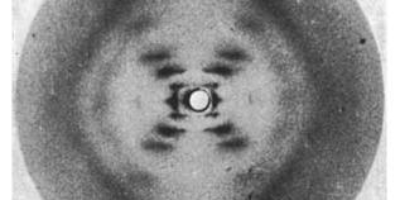6 jan 1952 ano - Alfred Hershey and Martha Chase
Descrição:
Hershey and Chase needed to be able to examine different parts of the phages they were studying separately, so they needed to distinguish the phage subsections. Viruses were known to be composed of a protein shell and DNA, so they chose to uniquely label each with a different elemental isotope. This allowed each to be observed and analyzed separately. Since phosphorus is contained in DNA but not amino acids, radioactive phosphorus-32 was used to label the DNA contained in the T2 phage. Radioactive sulfur-35 was used to label the protein sections of the T2 phage, because sulfur is contained in protein but not DNA.
Hershey and Chase inserted the radioactive elements in the bacteriophages by adding the isotopes to separate media within which bacteria were allowed to grow for 4 hours before bacteriophage introduction. When the bacteriophages infected the bacteria, the progeny contained the radioactive isotopes in their structures. This procedure was performed once for the sulfur-labeled phages and once for phosphorus-labeled phages. The labeled progeny were then allowed to infect unlabeled bacteria. The phage coats remained on the outside of the bacteria, while genetic material entered. Disruption of phage from the bacteria by agitation in a blender followed by centrifugation allowed for the separation of the phage coats from the bacteria. These bacteria were lysed to release phage progeny. The progeny of the phages that were labeled with radioactive phosphorus remained labeled, whereas the progeny of the phages labeled with radioactive sulfur were unlabeled. Thus, the Hershey–Chase experiment helped confirm that DNA, not protein, is the genetic material.
Adicionado na linha do tempo:
Timeline of DNA
Data:
